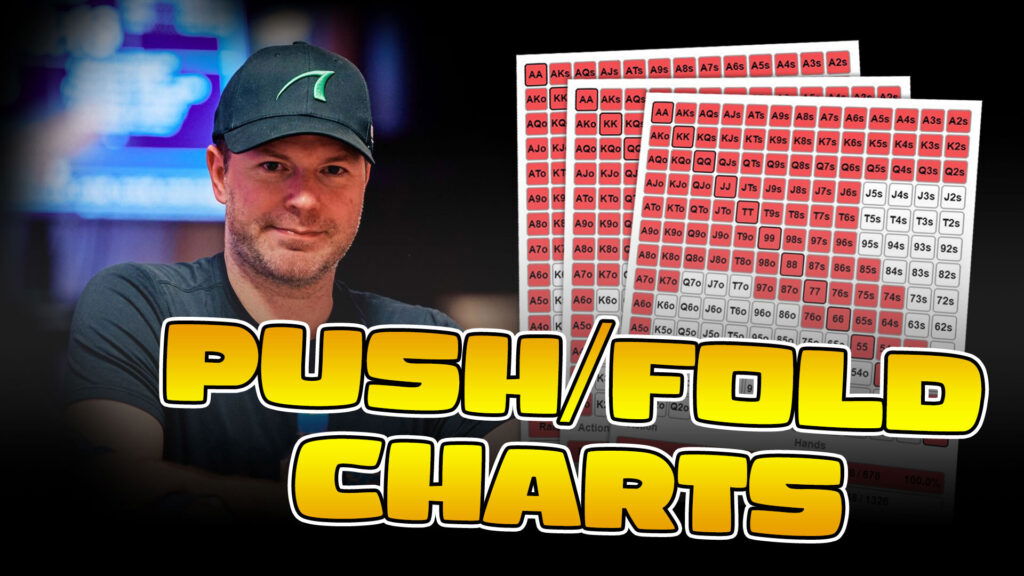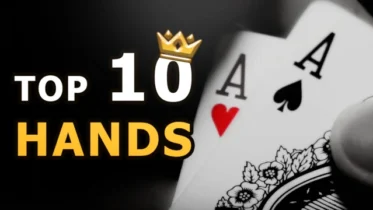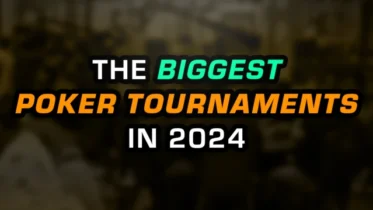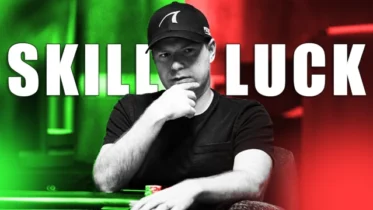Playing from the big blind in online poker tournaments can be difficult. No one likes playing out of position, as it can become especially difficult when you have an awkward stack size that you don’t know how to deal with. However, while playing from the big blind can be difficult, that doesn’t mean you’re incapable of solid play from out of position. If you ask ourselves five critical questions, you will put yourself in better situations.
Question 1 – Can I Just Go All-In From The Big Blind?
One of the best strategies you can use in the blinds is often forgotten: moving all-in.
Some players act as if they are not allowed to go all-in with more than a 20 big blind effective stack. I beg them to study this matter further, as it is perfectly fine to move all-in with more than 20 big blinds.
Eliminate The Need To Play Out Of Position
You can even move all-in 30 big blinds if you’d like. It’s not an optimal strategy, but if you’re playing against an excellent player, then the last thing you want to do is play out of position versus them. If you can prove in poker software that your all-in is profitable then go ahead and take your edge where you can get it. A positional disadvantage won’t matter if you don’t have to play the flop.

Crush cash games and poker tournaments with Jonathan Little’s Top Ten Poker Tips!
Question 2 – Can I Set Up A Check-Raise?
Another play you can set up in online poker tournaments is a check-raise. If your opponent has 25 to 40 big blinds, this is a play you should employ liberally. When your opponent opens from late position and continuation bets, it is likely you have caught them with a number of hands that have missed the flop. You will know they have missed the flop a large percentage of the time because they are opening a wide range and continuation betting with most of it.
Remember To Adjust Your Online Poker Tournament Strategy To Your Stack Size
Your opponent’s stack size is important because if you check-raise versus a 25 to 40 big blind stack, you put your opponent in a bind. If they want to float you or raise you again, then they will have to risk most if not all of their chips. Most players aren’t capable of doing this with a simple high card.
Look for flops where there aren’t two cards nine or higher. Your opponents like to raise with big cards, so if the board comes with mostly small cards or middle cards then it is less likely they have hit it. The one time this isn’t true is when you see an ace high board. Your opponent is going to be playing more ace highs than anything.
If you can set up a successful check-raise versus their compromised chip stack on a difficult board, then you will have effectively neutralized your positional disadvantage. This is a huge edge for you when position would normally hurt you.
“Most small-stakes poker players are either oblivious or do not care about the fact that stack sizes are different. They three-bet with just the best hands and do not care what position they are in. Not adjusting poker strategy in accordance with differing stack sizes is a big leak.“
– Jonathan Little
Question 3 – Does My Opponent Ever Double Barrel?
There are many opponents who are simply not capable of double barrel bluffing in online poker tournaments. If you are collecting statistics, you’ll notice their turn continuation bet percentage is only 40% or so. When they do turn over the hands they double barrel, you see they frequently have top pair or better.
Versus these uncreative players you can be more liberal with what you play out of position. Even if you flat a weak hand from the big blind, our uncreative opponent won’t test us enough to make us worried. You can call liberally with draws and weak pairs on the flop knowing that you will be able to realize our equity.
Question 4 – Can You Just Fold?
Folding is an exploitative play. People forget this all the time. Have you ever bet with a set into four players and had them all fold? It felt like they found an exploit against you, right? You wanted action and they disappointed you.
There are other more subtle situations where a fold exploits your opponent’s range. One great spot to exploitatively fold is found when you’re in the big blind versus a raiser and a caller.
People mistakenly think that when they’re getting a good pot odds they can call with absolutely anything, which is far from the truth. Even if you are given great pot odds in a spot, it will be immensely difficult to realize your equity. By being out of position for the rest of the hand, your opponents’ stronger ranges are likely to dominate yours.
When you both hit the flop, they will be able to clean you out with their superior position and hands. When you both miss the flop, they will be able to steal it from you with a continuation bet and superior information. When you hit the flop and they miss, they are likely to check back and get free cards while simultaneously making the pot smaller. In this awful situation, your best play is to fold any hand that doesn’t play well multiway.

Make the best preflop decisions with Jonathan Little’s Push/Fold Charts!
Question 5 – Can You Reraise?
There are some opponents who raise too many hands in late position, call most reraises, and then fold when they miss the flop. These opponents are a gold mine, and they should be treated as such. You want to still have some kind of hand when you go after them, but you don’t need as much of a hand as you’d think.
Using Check-Raises Early In Online Poker Tournaments
Facing opponents who raise too many hands from late position, you can try a few reraises versus them early in a tournament when it’s cheap to do so. If they respect you when they’re deep stacked, they’re likely to keep folding when your bets mean more to their stack. Just remember that it’s probable they raised and called with mostly high cards. If the board comes with multiple cards higher than a nine, then it could be time to pump the breaks.
Conclusion
One of the best ways to succeed at poker is memorizing and sticking to logical thought processed that help you make the right decisions. The big blind is one of the toughest positions to navigate in poker, by consistently studying playing from the blinds as well as remembering the five key questions I covered in this piece, you will be well equipped to crush online poker tournaments.



